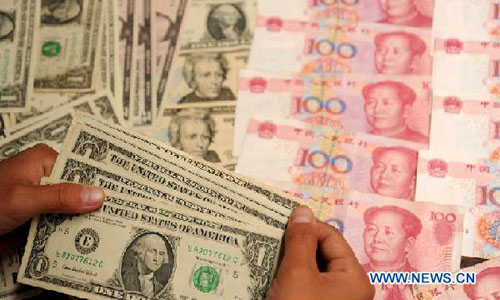China wants US to stop countervailing probes over 'yuan undervaluation'
Source: Global Times Published: 2020/7/23 22:43:00

File Photo: Xinhua
The Chinese Ministry of Commerce (MOFCOM) on Thursday urged the US to stop countervailing investigations into so-called "yuan undervaluation," which China firmly opposes.
The US investigation, based on a new rule published by the US Department of Commerce earlier this year focuses on imports from countries it deems to have undervalued their currencies and could result in tariffs.
The investigation adds new risks and uncertainty to already delicate trade ties between the world's two biggest economies and doesn't bode well for their phase one trade deal, a Chinese trade expert said.
In a statement on Thursday night, an official at the Trade Remedy and Investigation Bureau of MOFCOM said China has noticed that the US Department of Commerce has launched investigations into so-called "yuan devaluation" to its countervailing cases.
"China firmly opposes this," the unnamed official said in the statement, noting that the US move was against WTO rules on countervailing probes. "China urges the US to abide by international rules and stop the countervailing investigation into the so-called 'yuan undervaluation'."
The US Department of Commerce in February finalized the controversial rule that allows it to impose anti-subsidy duties on products from any country that it deems to have undervalued its currency against the dollar. The move was reportedly mostly aimed at China, and came despite a phase one trade agreement signed in January.
The MOFCOM official said that such a new rule likely violates WTO rules and has been opposed by many parties. "Even under US law, complaints by applicants contain a lot of mistakes and lack deciding factors such as fiscal support."
"This is the US unilaterally poking at the sensitive nerves of the China-US trade ties and risks reversing hard-fought results aimed at deescalating tensions and the trade war," Gao Lingyun, an expert at the Chinese Academy of Social Sciences who closely follows China-US relations, told the Global Times on Thursday, noting that the investigation risks a round of new tariffs.
Gao further noted that the US Department of Commerce's investigation into the "yuan undervaluation" also runs counter to an earlier decision by the US Treasury Department to remove China's designation as a currency manipulator in January as part of the phase one trade agreement.
In the statement, the MOFCOM official also noted that the yuan's exchange rate is based on market supply-demand and is linked to a basket of currencies. "Overall, the yuan's exchange rate remains in reasonable equilibrium and is not undervalued," the official said, noting that the yuan has strengthened by 17 percent against the US dollar since 2005.
Global Times
Posted in: ECONOMY